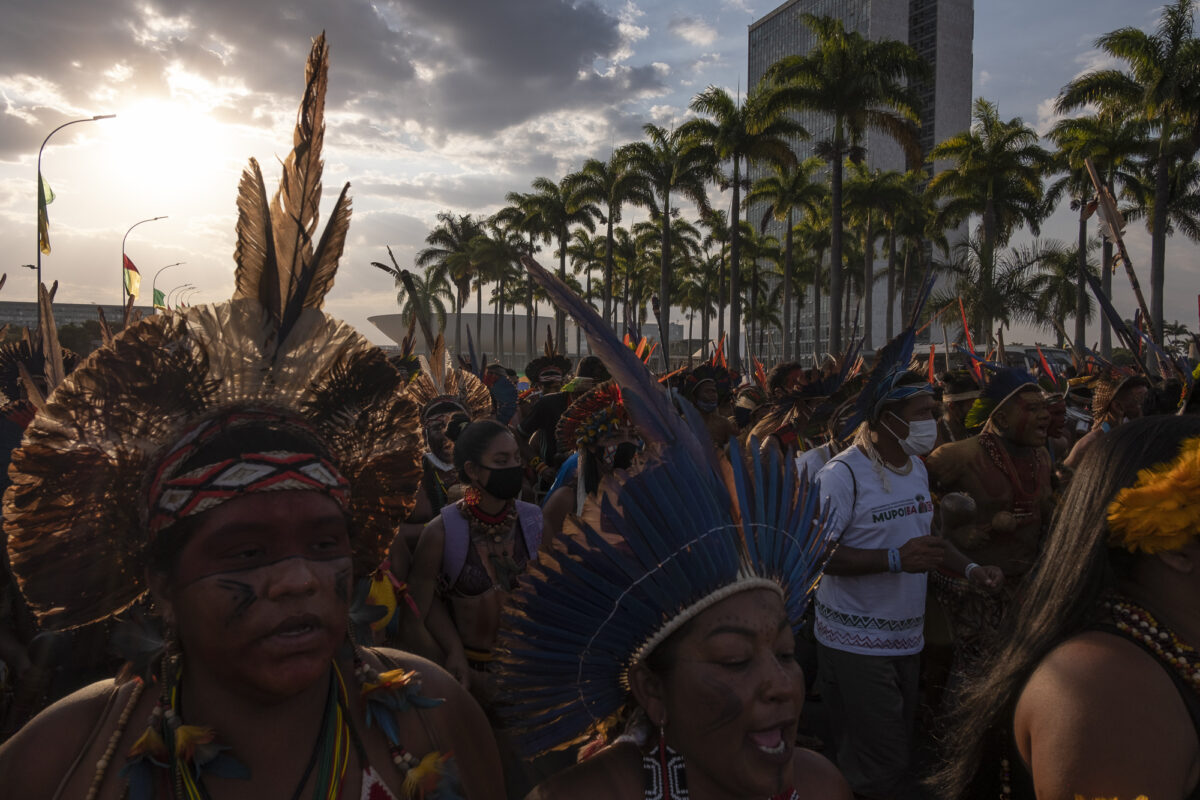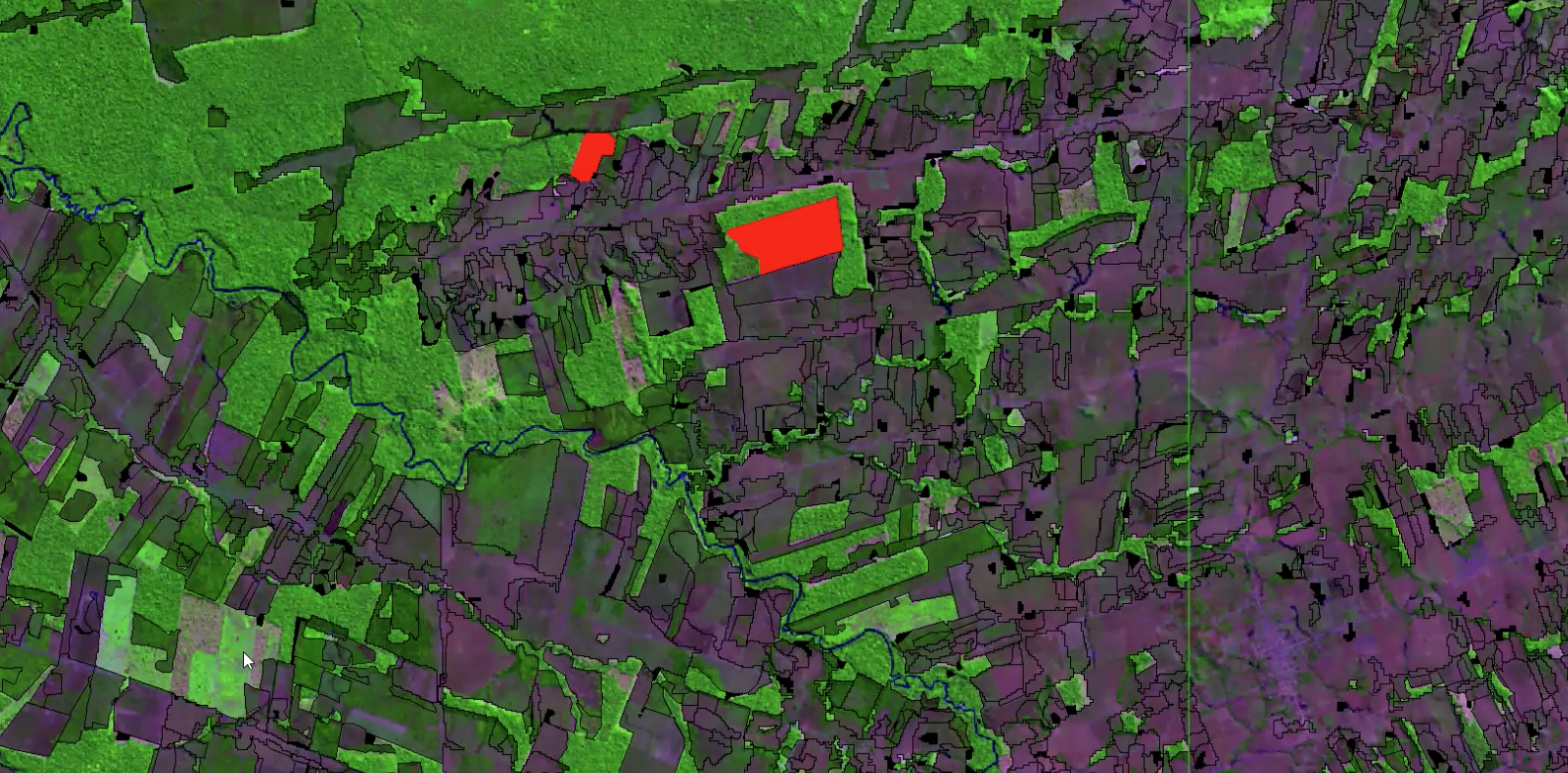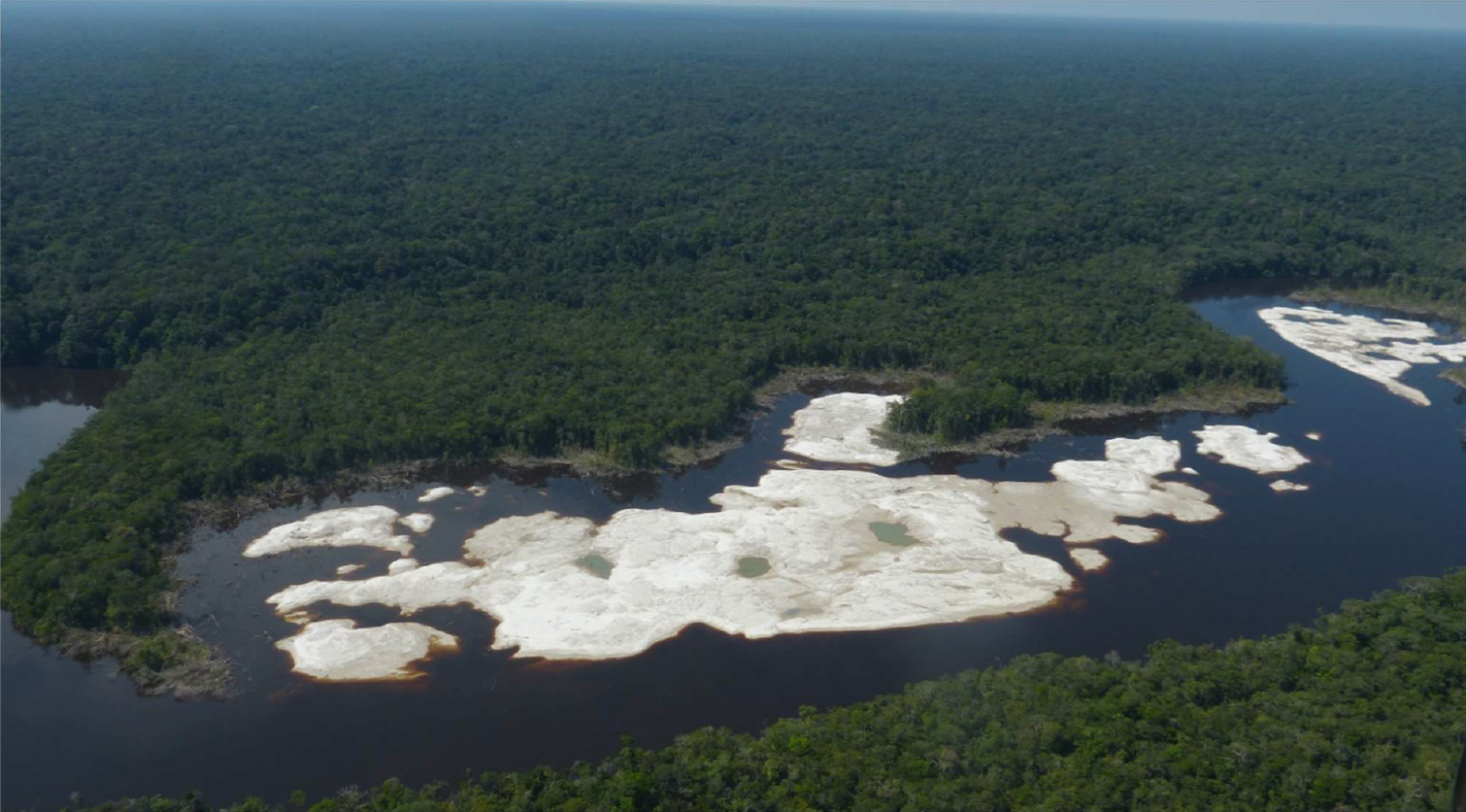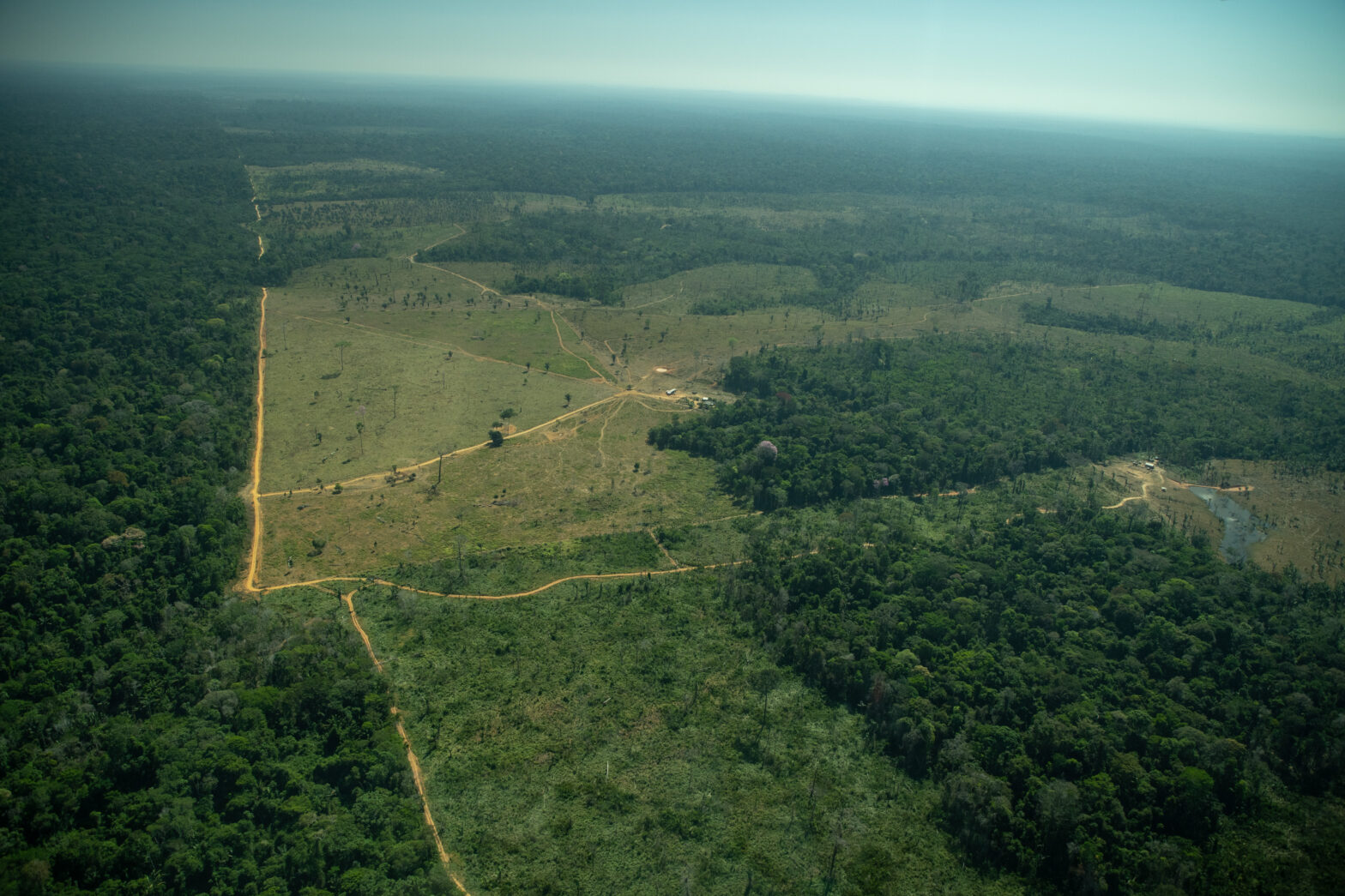Institutions heard by InfoAmazonia and PlenaMata list the bills that pose the biggest threat to the forest and its peoples. Containing the threats depends on popular pressure and organized opposition to Bolsonaro.
With the end of the federal legislative recess this week, high pressure is set to overtake debates and votes before and after the election period. Caucuses aligned with the government will use the year to approve bills that are harmful to Brazilian socio-environmental legislation and harm the Amazon and its peoples. The Chamber of Deputies and Senate will work remotely at least until Carnival, reducing direct popular influence in both houses.
“The pressure will increase because they have few months to approve what they want until the elections. After that, it’s an “every man for himself” situation. Depending on the election (if the extreme right is not re-elected), they will use November and December to force the approval of what they weren’t able to pass during this government. It will be difficult to stop them,” said lawyer André Lima, coordinator of the Climate and Sustainability Radar Project at the Democracy and Sustainability Institute (IDS).
The list of threats includes traditional agendas of the agribusiness caucus and its allies, such as legalizing the land grabbing of public lands in the Amazon and other regions, permitting mining and other activities on indigenous lands, further weakening environmental licensing, and expanding the massive use of pesticides.
In Lima’s assessment, over the last two years interim measures amending forestry legislation and proposals to regularize land grabbing and economic exploitation on indigenous lands were contained in Congress due to internal and external pressures. The 26th United Nations Conference on Climate Change (COP26) and brakes on trade agreements, such as the one between Mercosur and the European Union, also helped to contain the progress of these proposals, evaluated the lawyer and former Secretary of the Environment of the Federal District.
To continue the rejection of bills harmful to the environment and the pressure for parliament to be “greener”, Brazilians depend on their vote and on expanding these trends to the so-called “centrão”, a block of political parties that are flexible to the rising political power of each moment and that constantly demands resources from governments as compensation for their support. Its voters are mostly from municipalities with up to 15,000 inhabitants, where the climate, biodiversity, and sustainability are not priority themes.
An IDS survey revealed that last year, 203 deputies (40% of the lower House) posted on social media about climate issues. Over 7 out of 10 posts were from center-left parliamentarians who oppose the government. According to Lima, these parliamentarians have the profile to thicken votes in favor of environmental agendas and improve the pre-election political scenario.
The best way to differentiate oneself from Bolsonaro and his movement have to do with agendas of climate and environment, health, and science. Facing the proposals for setbacks in Parliament depends on greater negotiation with parties and congressmen who will oppose the government in the elections.
André Lima, lawyer and coordinator of the Climate and Sustainability Radar Project at the Democracy and Sustainability Institute (IDS)
According to monitoring of 179 congressmen by the Socio-environmental Parliament Panel, 50.3% evaluate the government’s environmental policy as bad or awful, 59% disagree that environmental policy hinders economic growth, 53% believe that penalties for environmental crimes should be tougher, and 45% want greater productivity in converted areas and reduction of deforestation in the Amazon and the Cerrado.
“However, these political positions are not necessarily translated in favor of environmental agendas. It all depends on each proposal and who’s behind it. This could also change with the growing influence of modern companies and investors who are aware of the impacts of a completely anti-environmental government on their businesses,” he highlighted.
To list some of the bills that pose the highest threat to the sustainable development in the country, InfoAmazonia and PlenaMata also consulted the Amazon Institute of Man and Environment (Imazon), the Environmentalist Parliamentary Front, the Socio-environmental Institute (ISA), WWF-Brazil, and Greenpeace.
Below, we have the list of the bills that threaten the amazon the most:
Bill 2,633/2020 and 510/2021
What it proposes: authored by Federal Deputy Zé Silva (Solidarity-MG) and Senator Irajá Abreu (PSD/TO), the so-called “Land-grabbing bills” propose legalizing large extensions of public lands that were illegally occupied in the Amazon before December 2014.
Impact: Illegal occupations may be regularized just by presenting a Rural Environmental Registry (CAR). Properties will be exempt from restoring native vegetation, and conflicts in areas with precarious land tenure are expected to increase. In practice, this stimulate new invasions and more deforestation.
Status: awaiting consideration by the Senate.
Bill 3.729/2004
What it proposes: it practically extinguishes the environmental licensing of construction works throughout the country.
Impact: it will allow the vast majority of projects to self-license, overturning national parameters in which states decide on these procedures. This should increase legal battles regarding licenses and threats to indigenous and traditional communities affected by construction projects, opening way for deforestation and other impacts inside and outside protected areas. It was sponsored by PT deputies such as Luciano Zica (PT/SP), Walter Pinheiro (PT/BA), and Zezéu Ribeiro (PT/BA), but has undergone numerous changes over 17 years, completely subverting it.
Status: awaiting consideration by the Senate.
Bills 191/2020 and 490/2007
What they propose: permitting activities such as mining and hydroelectric plants on indigenous lands, including those that are home to isolated peoples, who prefer to maintain little or no contact with urban society. In addition, they bar once and for all the recognition of indigenous territories, according to the so-called “time limit” thesis, which provides that only indigenous lands that were in possession of an indigenous group on the date of enactment of the 1988 Constitution should be considered for demarcation.
Impact: besides increasing deforestation because of agriculture and logging, the bills threaten the sovereignty of indigenous peoples over their territories, increasing their exposure to violence, diseases, and contamination – by mercury from mines, for instance. They are authored by the deputies Homero Pereira (PR-MT) and the Executive branch.
Status: PL 191 awaits consideration in the House; PL 490 is ready to go to the vote in plenary.
Bill 6.299/2002
What it foresees: the so-called “Poison Package” facilitates the approval and use of pesticides in the country. The proposal wants to replace the term “agrotoxins” (agrotóxicos, as they are known in Brazil) with “pesticides”, seeking to disguise the dangers and reduce the linkage of substances with environmental and human health impacts. It’s authored by former senator Blairo Maggi.
Impact: environmental and health agencies would be almost totally removed from decisions on the use of poisons in agriculture. Responsibility would be held within the Ministry of Agriculture. The measures legalize the use of chemicals that have been banned in other countries because they cause a series of diseases.
Status: Aproved by Chamber of Deputies. Now it goes to the Senate.
Bill 5.544/2020
What it proposes: allowing “sport hunting” of any wild animal in the country, claiming to promote the “conservation of species threatened with extinction”.
Anyone over the age of 21 carrying a Collector, Gunner or Hunter (CAC) registration and license would be allowed to hunt. It is authored by federal deputy Nilson F. Stainsack (PP/SC).
Impact: the bill does not address how the species and quantities hunted in the national territory will be inspected in the face of the paralysis of environmental agencies. Today, in Brazil, hunting is only allowed to control populations of exotic boar.
Status: it awaits consideration by the Environment and Sustainable Development Committee of the Chamber.
Reporting by InfoAmazonia for the PlenaMata project.





